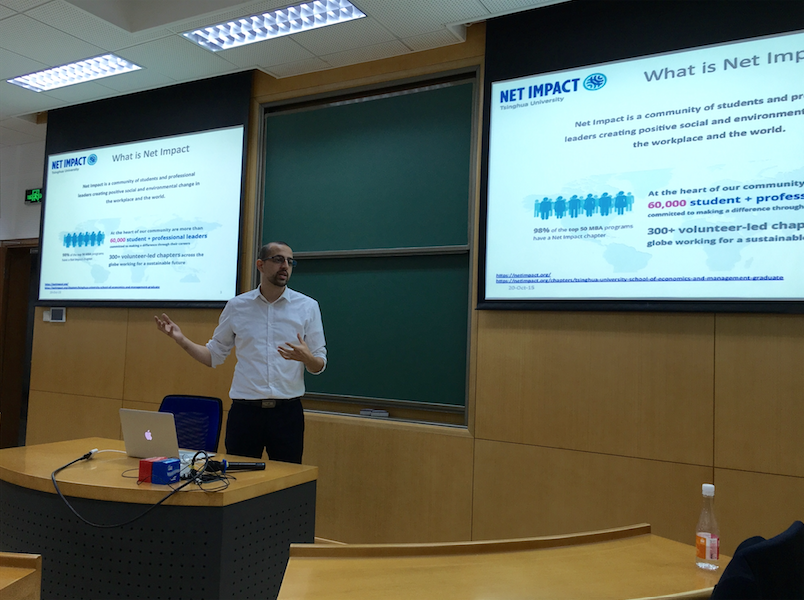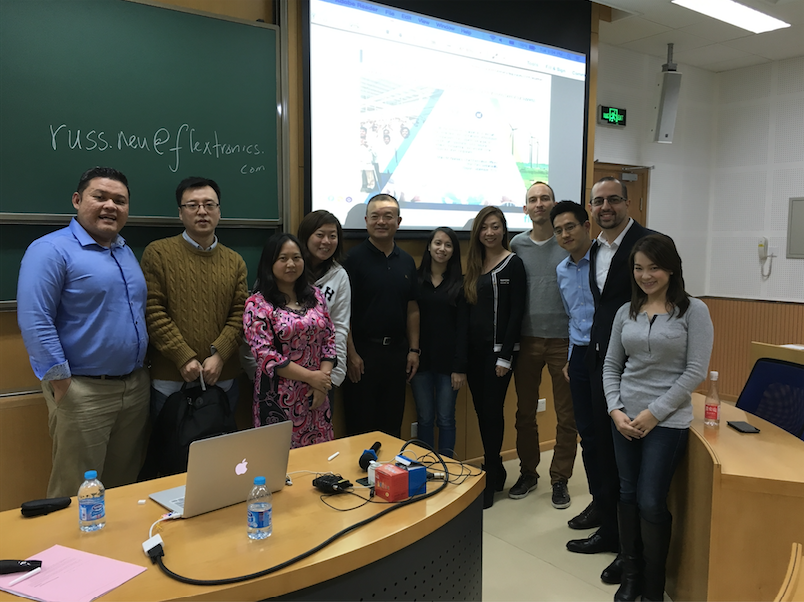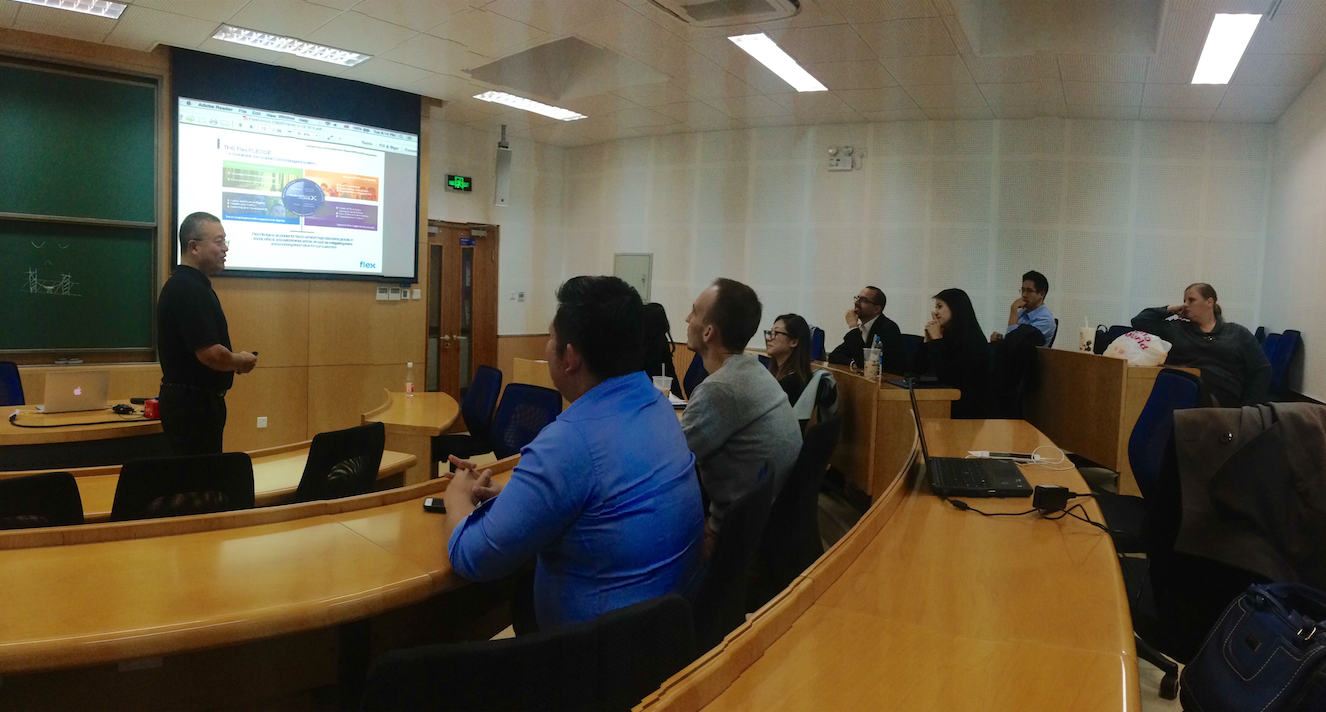Paulo Lopes, GMBA Class of 2016

In October 2015, Mr. Tony Wu, the Vice President of Operations and General Manager of Flex Zhuhai, kindly accepted our invitation to come and share his experience about how to build win-win strategies for both companies and society. Originally from Beijing, Mr. Wu holds a Bachelor of Science (B. Sc.) degree from Northwestern Polytechnic University and Master of Business Administration (MBA) from Kellogg School of Management and Hong Kong University of Science and Technology (HKUST). Prior to his current position at Flex Zhuhai, Mr. Wu was the General Manager of Flextronics Suzhou. Earlier in his career, Mr. Wu held various management positions at Lenovo, Dell, Lucent Technologies, Aavid Thermolloy, and JET Inc.
Flex is an international supply chain solutions company that offers design, manufacturing, distribution and aftermarket services to OEMs. It is the second largest global Electronics Manufacturing Services (EMS) company in the world, with operations in 30+ countries and 200,000 employees. Mr. Wu oversees Flextronics Zhuhai’s campus management, operations and P&L, which employs 40,000-60,000 employees and generates $4bn - $8bn in revenue.
Flex has a very strong Corporate, Social and Environmental Responsibility (CSER) mindset. More interestingly, Flex sees CSER as more than just a marketing tool. Flex sees CSER as a source of competitive advantage that creates better working conditions for its employees and value for society while also generating additional profits for its shareholders.
Mr. Wu’s sharing of his hands-on experience stimulated a series of very insightful conversations – for example, about the challenges he faces in managing his plant due to China’s shifting demographics, which have caused a reduction in migrant worker supply. Other hot topics included the high attrition rate associated with Generation Y and the constant battle to remain responsive to technology and environmental changes.

Tony Wu, Vice President of Operations and General Manager of Flex Zhuhai, with GMBA students
Specifically on the topic of how employees are treated, Flex not only provides market-driven base pay, free accommodation, recreational facilities and meals, which are the common practice in this industry. It also provides a profit-sharing program, which means for each assembly line, the workers can get a share of the profits and see in real time how much bonus they are making. Flex also supports employee education by sponsoring employees to pursue university degrees or professional courses. As most workers are migrants, Flex has partnered with several organizations to provide support for migrant workers to integrate more easily and help to bring their families to the city by supporting the education of employees’ children.

In the words of Mr. Wu: “As some are painfully aware and most of us should be aware, we are in a crisis mode in China. To turn this around, we must make the cultural shift from a ‘Hire and Fire’ mentality to one of Workforce Retention and Dedication.”
Factory workers’ living and working conditions have improved substantially in the past few decades. However, in an industry where profit margins are only 1-2%, many think that spending so much money on employees would decrease profits, thus adversely affecting the business. Due to the scale of the factory, it is possible to use strong data analytics to measure the effect of employee benefits on the companies’ profits. After analyzing the data, Flex found that for each employee who leaves, it costs $400 (this includes HR-related costs, e.g., replacement and training costs, opportunity cost of productivity, etc.).
To reduce these costs, Flex chose to invest more heavily into employee benefits. This increased Flex’s retention rate dramatically – it even became one of the highest retention rates in the entire industry. With this mindset, Flex managed to reduce costs, provide better working conditions for employees, and create a win-win situation in which both company and society are better off. This example shows that with analysis, creativity, and an open mind, it is possible to create win-win situations where profits and doing good for society are aligned!
About Tsinghua Net Impact
Net Impact is a network of 60,000 students and professionals all around the world who want to create positive impact in the society through business practices. Net Impact at Tsinghua is the first Chinese mainland student chapter under the global Net Impact organization, which includes key business schools such as Harvard, Wharton and INSEAD.
We strive to develop top leaders who seek to improve the world and society through business, and we facilitate interaction of ideas and projects in corporate social responsibility, social enterprise and non-profit organization management.
Come, join us and make a difference!